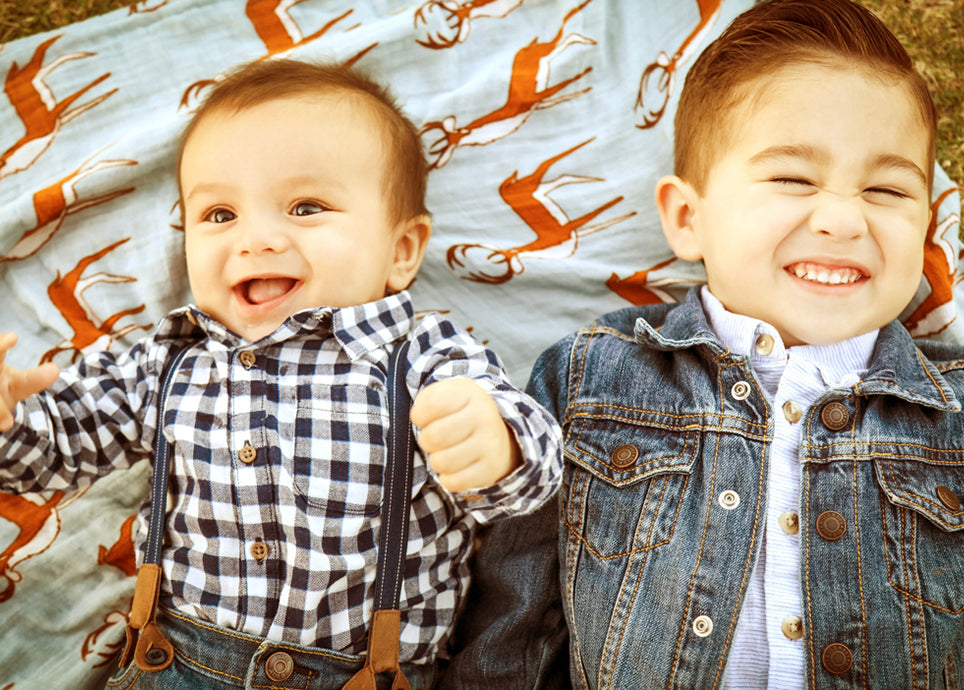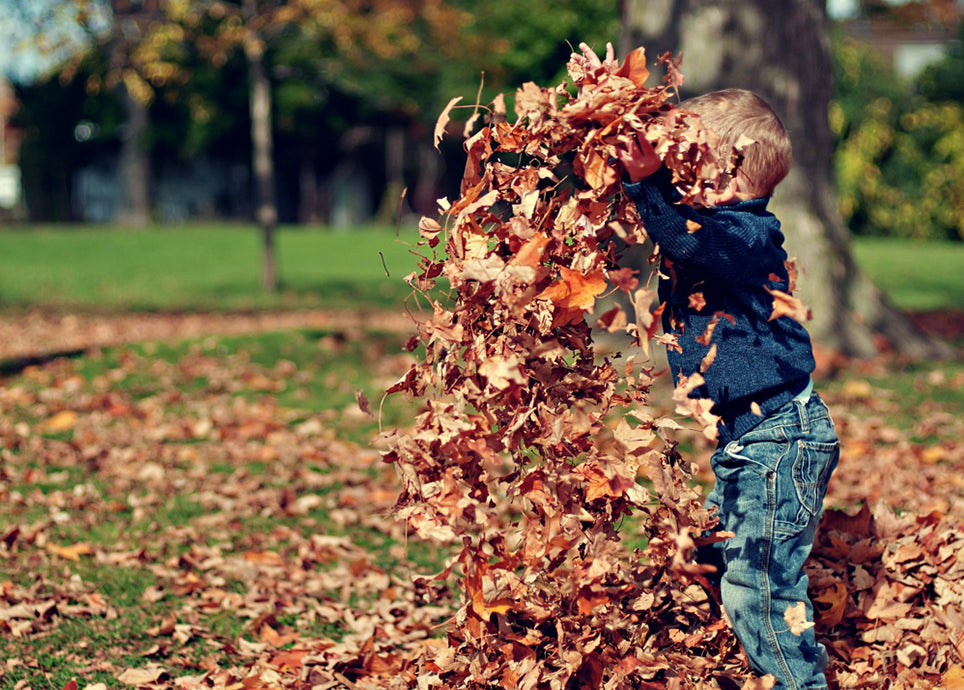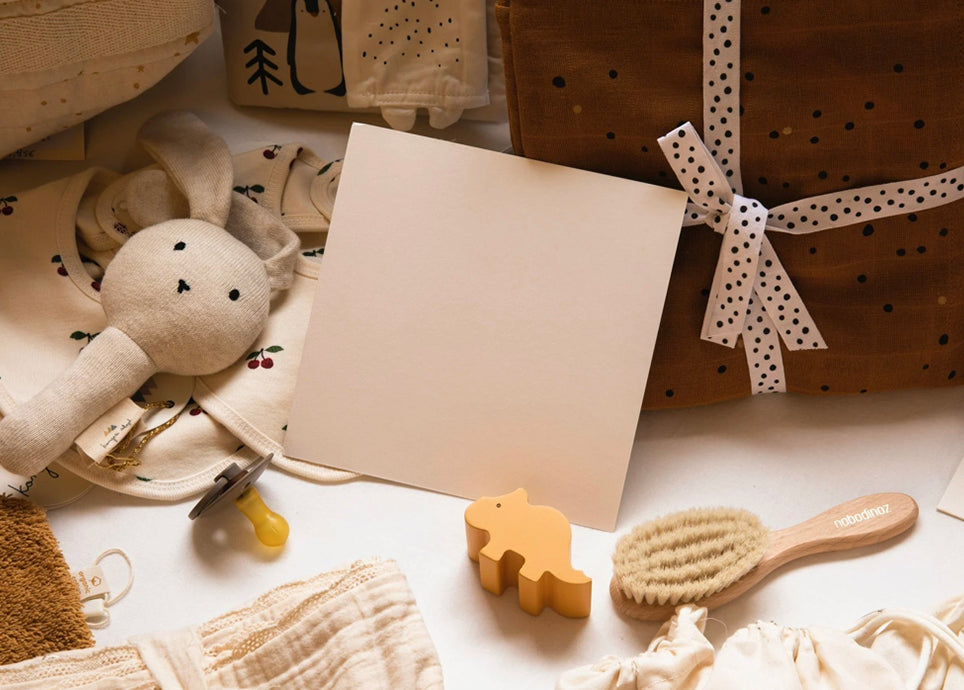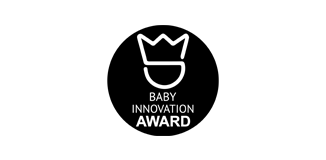We all know it: feelings. We wake up with them and go to bed with them. Throughout the day, we experience a variety of feelings, based on the situation around us and how we relate to it. Feelings influence our actions and send a message to the outside world. That's why it's important to be familiar with feelings and to know how to handle them. But did you know that this already starts at birth? Emotional development starts from day one and slowly grows with you. While you're reading this, your little one may very well be expanding their world. Depending on their age, they will gain more and more understanding of their own feelings and those of their caregivers. In this blog post, we'll take you on a journey through your child's emotional development: how does it start and what can you expect?
In the womb
Even before the baby comes into the world, it feels with you. The baby gets an inside view of how you are doing and what is happening outside the womb. They share, to some extent, the same feelings that you experience and respond to loud noises outside the womb. The feelings you experience, and therefore they do too, can influence the baby after birth. That's why it's important to pay attention to your feelings and your mental health.
The first few months
There he/she is: your newborn baby! In the first few weeks, very little happens, and they mostly sleep, but that doesn't mean they don't already have feelings. Babies are indeed capable of having basic feelings. In the beginning, it will be a matter of satisfaction/dissatisfaction, but in the second month, feelings such as joy, elation, and sadness will emerge. They express their feelings directly when they are present. This can cause your little one to suddenly cry, or the very first smile may appear on their face. Feelings guide your baby in what they do and don't do. They are not yet able to regulate these.
When your baby reaches the age of three months, the actions of others will affect their feelings. Babies may start to smile or show their satisfaction in response to something you do or to their toys. They will also imitate people around them by mimicking sounds. They are fascinated by their own voice and yours.
Months 4 - 6
In the second quarter of the first year of life, your baby will communicate more and better. They let you know when they want to be picked up by raising their arms. Also, feelings become more intense as time goes on; the difference between positive and negative feelings will increase. In addition, interest in the feelings of others increases. Your little one will try to imitate the feelings and facial expressions of others.
Responsiveness grows further; the baby responds to your feelings and those of others around them. So, they may become upset if you are angry and look away if you are sad. Actions also affect the baby's mood - for example, your baby will start to cry when you stop playing.
In month five, your baby starts to laugh. In addition, they expand their feelings with anger and frustration. Both feelings will be visible on their face. It's good to remember that babies don't mean anything personally but simply live 'in the moment'. Everything they do is in response to a situation.
Babies also increasingly begin to have a preference or aversion to certain things or situations. They may react negatively to food they don't like or become frustrated when they want to do something that doesn't yet succeed.
When the sixth month begins, your baby may experience mood swings - they can become grumpy from one moment to the next. Fortunately, there are also plenty of positive milestones to note in this month: babies will stick out their tongue and share their attention. This allows them to focus on more than one person and follow your gaze. There is also a chance that they will turn their head when you call them by name.
Month 7 – 9
During this period, your baby gains a new feeling: fear. Babies can now react anxiously when a stranger approaches them or when you disappear from sight. This is because babies in this phase can distinguish between familiar and unfamiliar people. Thus, they attach themselves to a selection of people they prefer to be near. This may mean that your baby no longer wants to sit on the neighbor's lap, even though it used to be different. This is also called 'single familiarity'. Another word for this is 'stranger anxiety'.
For you as a parent, this can be a difficult period because it becomes difficult to go anywhere. Because another development that comes after single familiarity is separation anxiety. Babies realize that they and you are not one. Or, put another way: they gain their own awareness.
When you disappear from sight, your child may suddenly start to cry. Your baby doesn't understand that you will eventually come back; she thinks you are leaving her forever. This can evoke crying and requires a calm, soothing approach. It is important to take your little one's feelings seriously.
No worries! Experiencing separation anxiety is a normal part of emotional development. It usually happens in babies between eight and eighteen months old, although there can be exceptions.
During these phases, babies will need more signals of emotional reactions from you. They see this as an indicator of whether something is 'safe' and use it to calm down. They also use it to figure out what to think about something. For example, if you make a face when you eat asparagus, there's a good chance your baby will do the same. Their preferences are based on yours. And if you get emotional during a visit to a store, the doctor, or when dropping your baby off at daycare, your child might associate those places with sadness. This is known as 'social referencing'. This phenomenon mainly occurs in babies.
Besides playing alone, separation anxiety, and social referencing, there's more room for games, and your baby is increasingly able to connect their facial expressions with feelings. They're now familiar with all the basic emotions: interest, joy, surprise, anger, sadness, disgust, and fear. And they're enjoying games like 'peekaboo' more and more. Now is a great time to play social games with your baby!
In addition to expressing their own feelings, they're getting better and better at reading other people's gestures and facial expressions to understand how someone is feeling. They're also able to point at something and then check if you're actually looking at it. This is a subsequent step in the area of shared attention, which was already mentioned in month six.
Months 10-12
The end of the first year is in sight, and this comes with even more milestones for your little one. Your baby's awareness is increasing, and they can show more and more emotions. The feeling of 'shame' now comes into play when they do something they're not supposed to. Plus, your baby is becoming even more sensitive to the approval and disapproval of others.
By the twelfth month, a new era begins: your baby's emotional development expands with their first words. Babies can then communicate with body language and small words. Still, the emotions will probably feel just as intense as before for now. This will only decrease later when they've learned to regulate their emotions.
But for now, you'll still have to deal with unregulated emotions. Look at it from a positive side: you can already communicate with your child before they're even a year old! That's definitely a milestone to celebrate and be proud of. Your baby will surely share this feeling with you, just like the previous emotions!

















Leave a comment
This site is protected by hCaptcha and its Privacy Policy and Terms of Service apply.